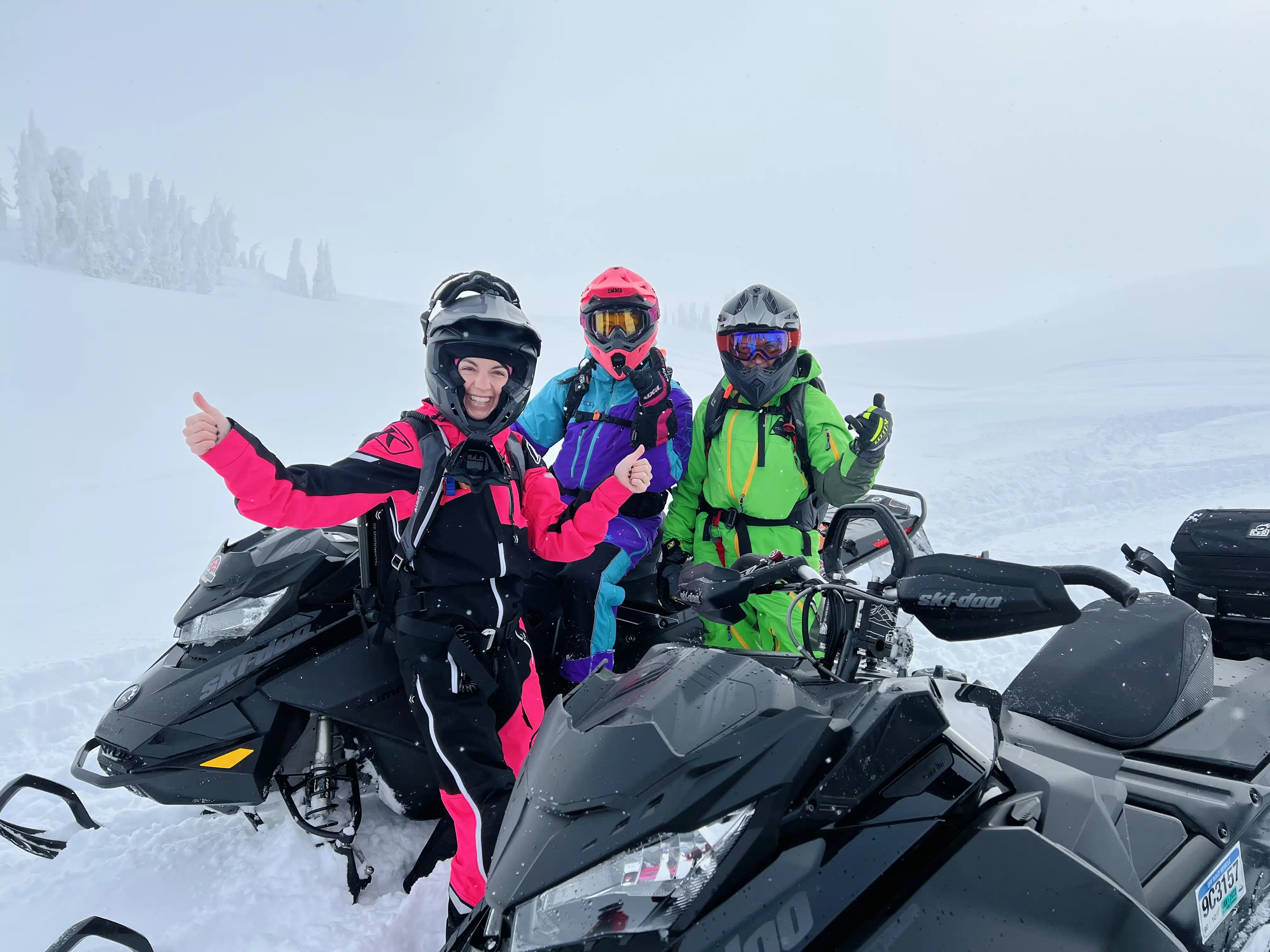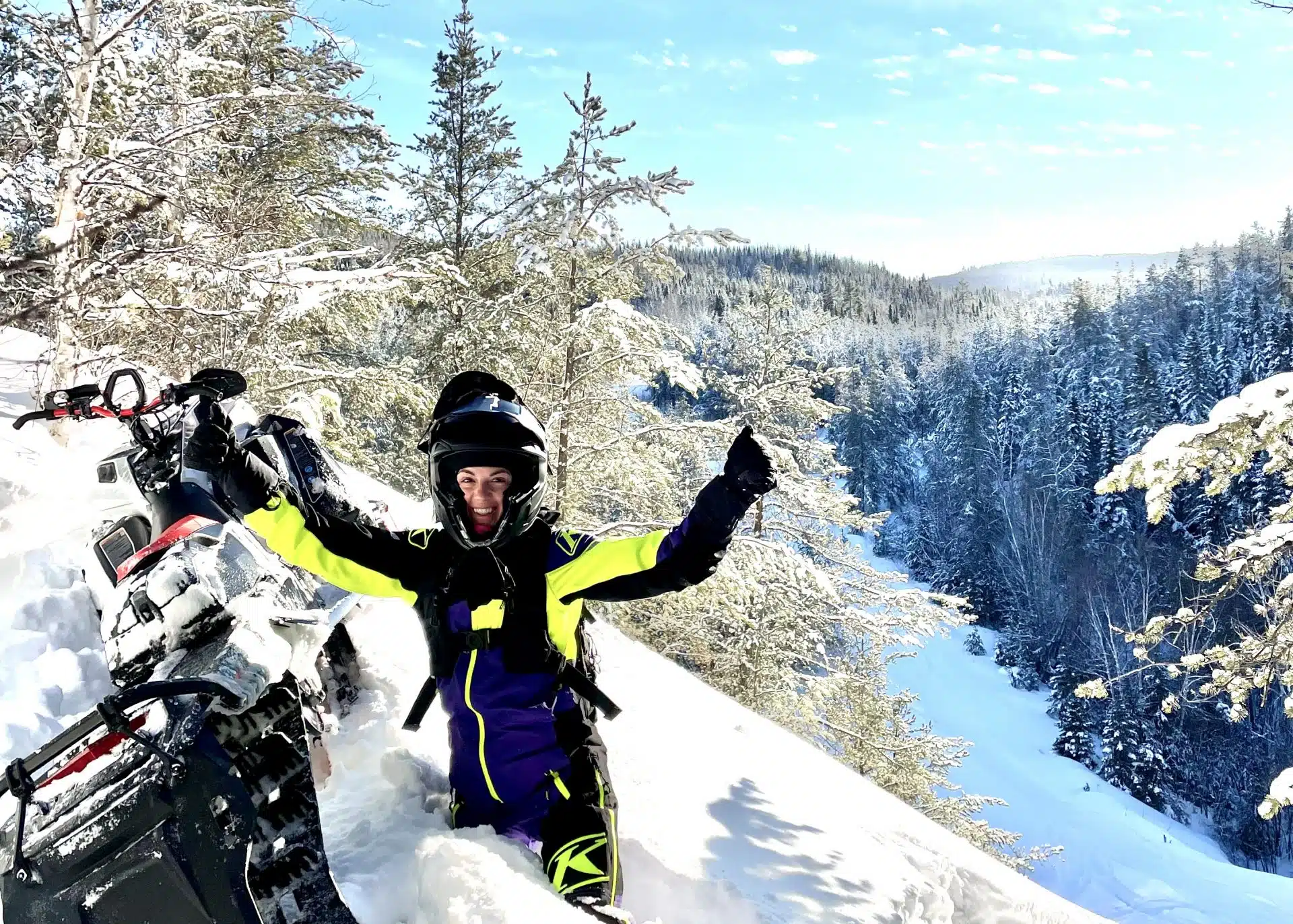Table of Contents
The 5 things you absolutely need to know about off road snowmobiling
Off-trail snowmobiling is the most beautiful sport you can indulge in. When you have this addiction, you will rarely be able to get rid of it. And unfortunately, this passion only grows with the seasons and even ends up overwhelming you out of season!
“On the other hand, when I started, head down, to practice this sport, I was far from suspecting all that it really implied. »
I am still learning this sport myself. I have plenty of crusts left to eat! But there are 5 big truths about this sport that I wanted to share with you, without filter and in all honesty. In fact, I would have liked them to be shared with me when I started myself. It would have made me realize that what I was going through was completely normal!
So, whether you are thinking of starting the practice of this sport, or whether you are currently learning, here are 5 things you absolutely need to know about backcountry snowmobiling.
1. A TECHNICAL SPORT THAT REQUIRES PRACTICE
Having tried the practice of several motorized sports, I must say that this is one of the most technical. I would probably position it on the same level as the practice of enduro motocross.
“For each maneuver you want to perform, there is a particular technique to apply. »
And if we do not apply it properly, we do not succeed. Quite simply! And the beauty of it is that, most of the time, when you try, and fail, you get a few bonus minutes of shoveling and pulling on skates (haha)!
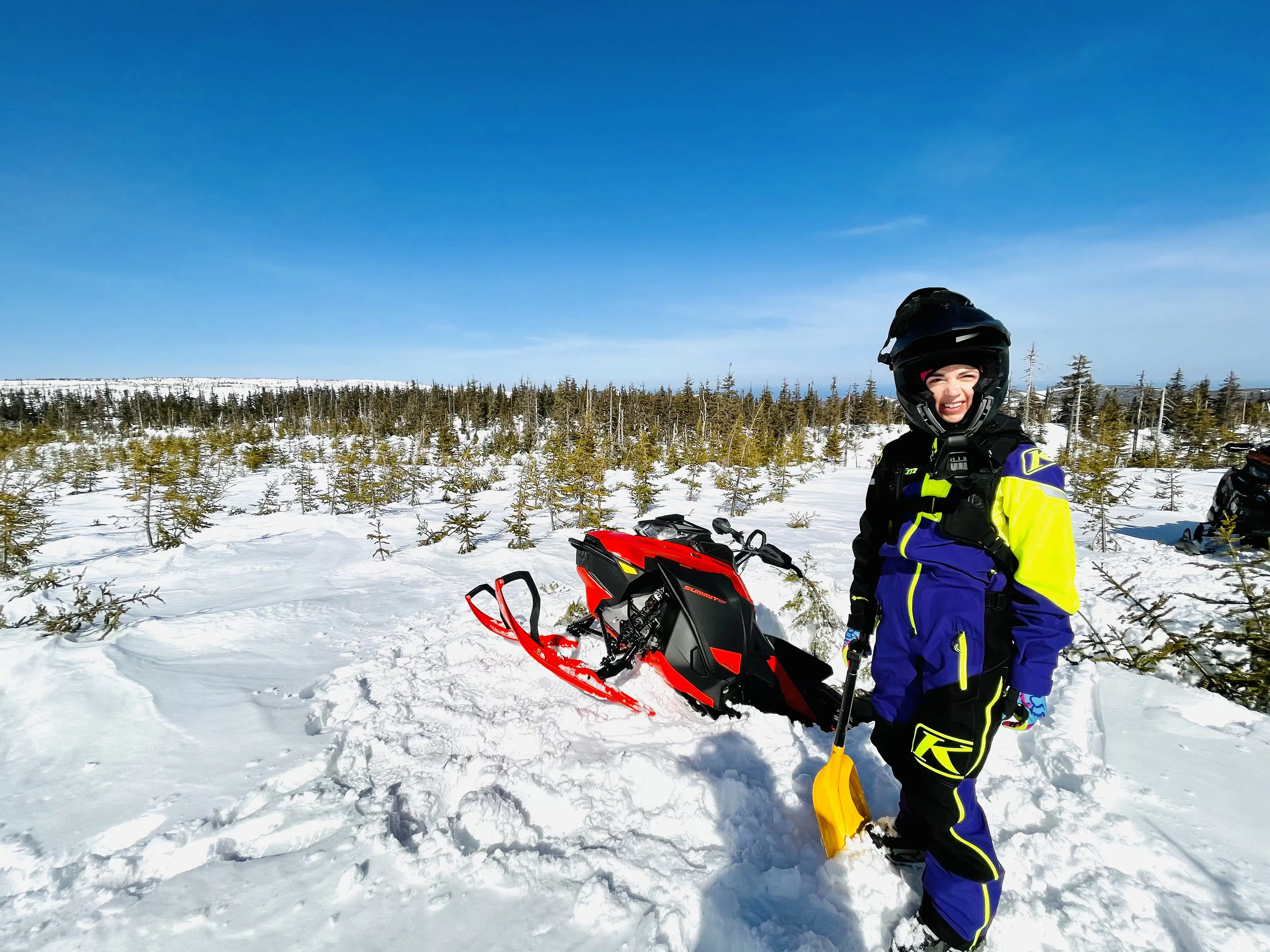
We cannot therefore hope to succeed in a maneuver as if by magic. First we have to be taught it by another person, and then we have to practice it several times before we become comfortable. Some people will need less practice than others, but that’s still the key.
Two things here regarding techniques and practice:
(1) Techniques: Even experienced riders continue to learn from season to season. So there is nothing embarrassing about learning. On the contrary, it is always so fun and rewarding to integrate new techniques and to manage to master them. And we are going to say it to each other, new techniques often simplify our lives and save us strength and energy.
(2) Practice: We must learn to devote time to it during our outings. During our outings with friends, we generally do not stop to practice specific techniques. It is therefore important to set aside time to do so.
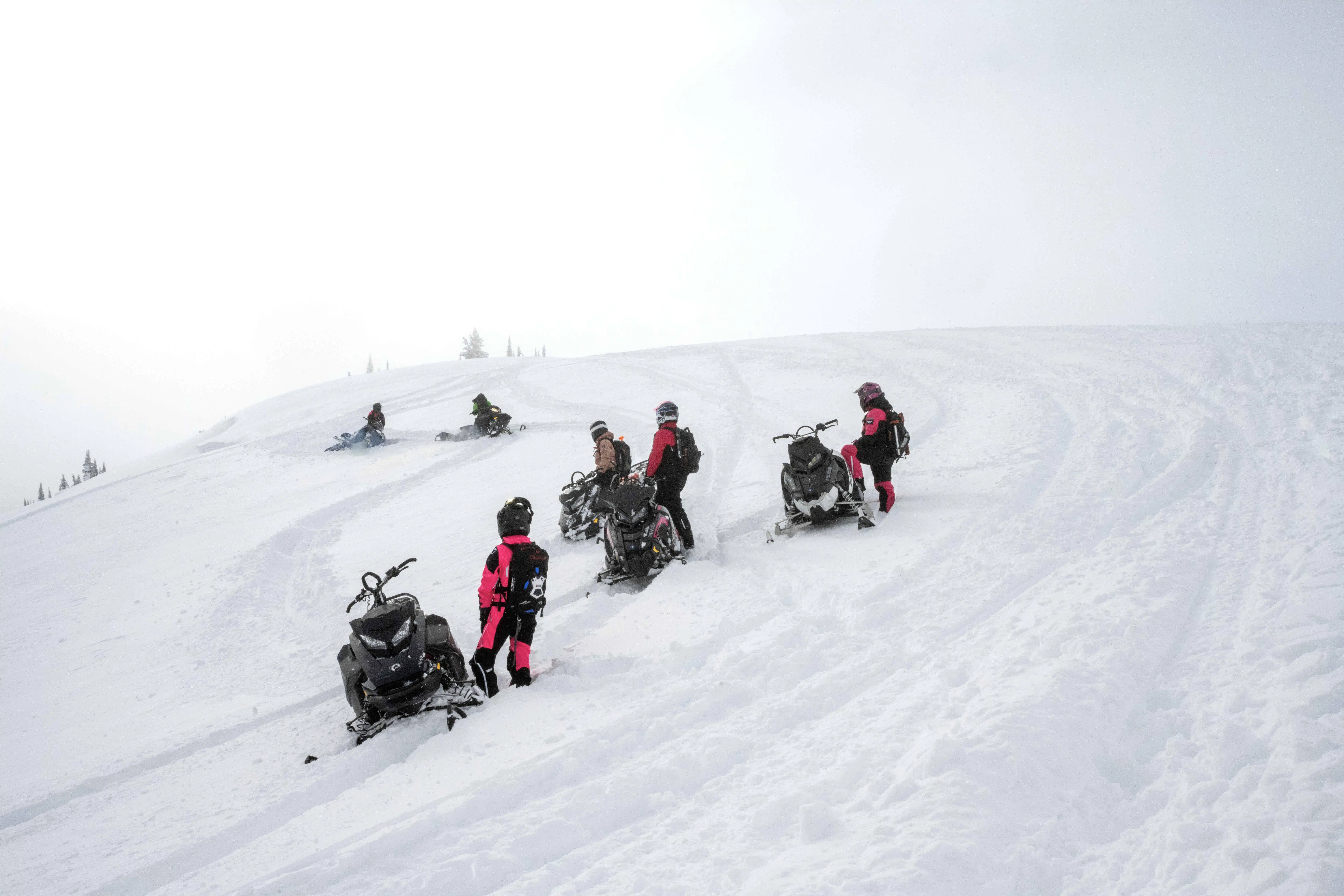
2. A PHYSICAL AND ENDURANCE SPORT
You don’t have to become Mr. or Mrs. Universe to practice off-trail snowmobiling! On the other hand, you must be in good physical shape and develop your endurance if you want to hike the mountains for hours and days at a time.
Some will say that snowmobiling is not a sport, that you sit on a machine that advances by itself when you press the accelerator. But that’s definitely not true when it comes to off-trail snowmobiling. Those who do it will tell you. In deep snow, when you’re stuck, it’s not because you press the accelerator that the snowmobile necessarily moves forward easily on its own (haha)!
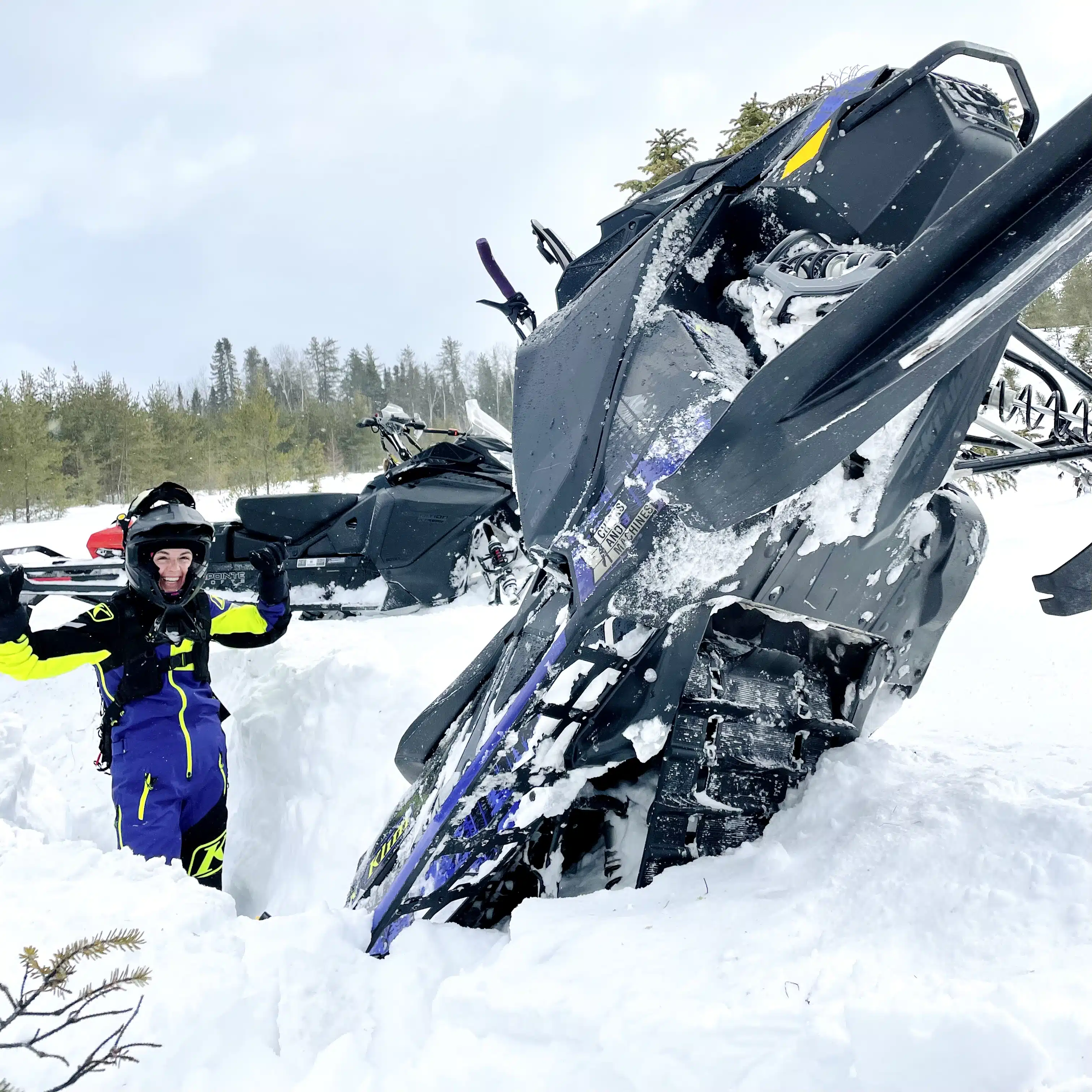
“Off-trail snowmobiling is not just a motorized sport, it is a sport in its own right that requires strength, endurance and cardio. »
If you want to perform well in this sport, you must make sure you eat well (to have all the energy you need during your days), stay well hydrated (because you will inevitably sweat profusely!), train at the same time in endurance and cardio and ensure your body and muscles recover well after your rides. Rapid recovery is what will allow you to chain rides for a few days in a row.
And if, like me, you are a small person, parallel training will allow you to gain the muscular strength that will make the difference to perform your maneuvers with a machine that weighs on average 450 pounds empty, while carrying on your shoulders a weight of about 10 pounds all day (avalanche backpack and its contents, shovel and pole).
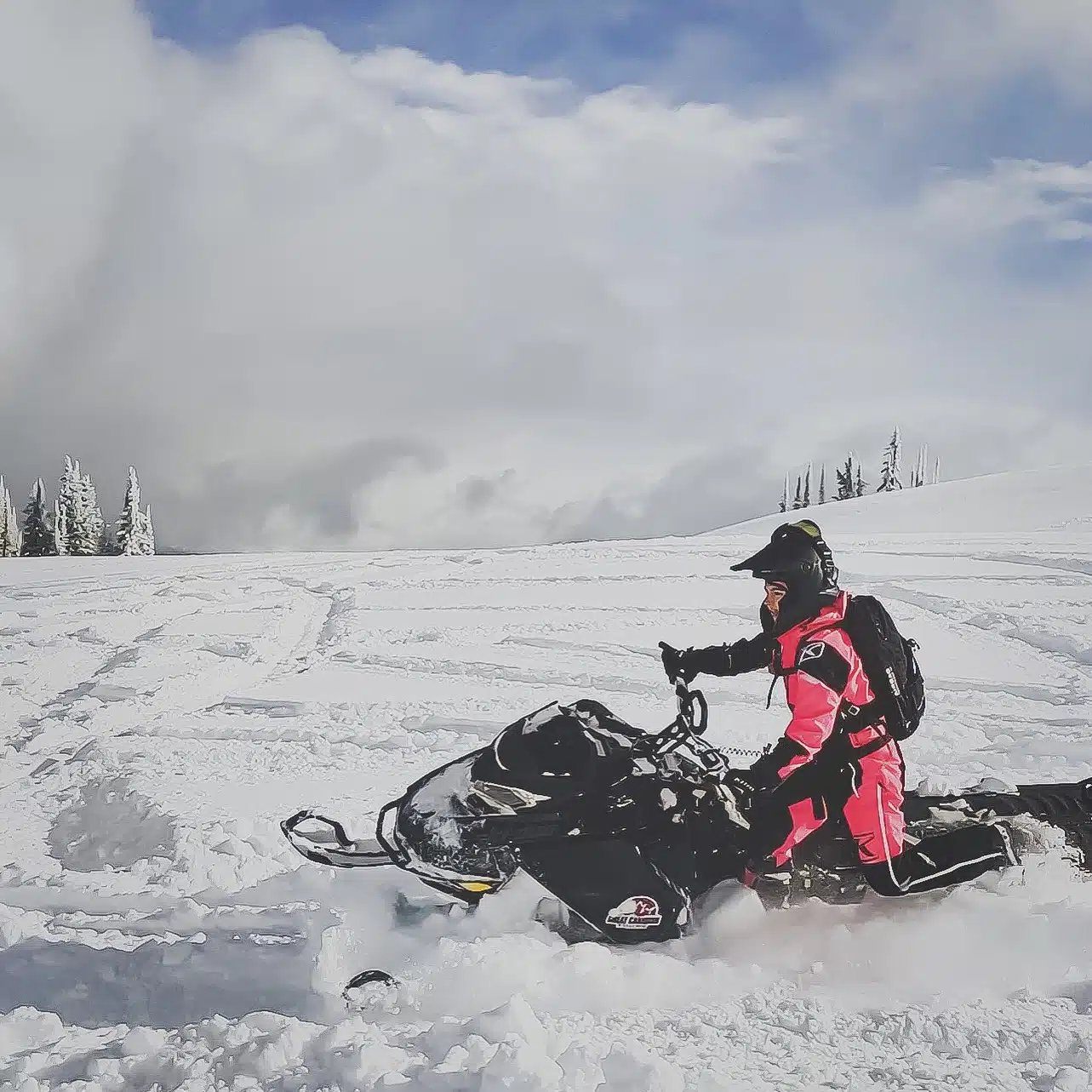
3. KNOWLEDGE OF WEATHER, TERRAIN, GEOLOCATION, FIRST AID ETC.
If you practice off-trail snowmobiling in Quebec, this may be something you think a little less about. However, whether you live in Quebec or in the west of the country, weather, terrain, geolocation, survival in the forest and medical knowledge are all important.
(1) Knowledge of the field
In Quebec, knowledge of the terrain will allow you to avoid, for example, badly frozen bodies of water, mud creeks, hazardous logs, rocky terrain, etc. While in the high mountains, in the west of the country, we will talk more about knowledge and training in snow compaction and avalanche risk. In both cases, for your safety, it is in my opinion a necessary marriage between this sport and this knowledge. In terms of forecasting avalanches, formations, etc., the Avalanche Canada website is a very useful basic tool.
(2) Knowledge of first aid, forest survival and avalanche search/rescue
Off-trail snowmobiling is almost always practiced in the forest, in remote areas, in many places where, in the event of injury or illness, you often find yourself outside of cellular networks and far from emergency services. Having at least two people on your team with knowledge of first aid, forest survival and avalanche search and rescue is therefore essential. And why two will you tell me? Because if one of them is the victim, you will need a second who can help them.
(3) Weather and geolocation knowledge
Knowledge of weather and geolocation, both in Quebec and in Western Canada, is essential in order to properly prepare your equipment, your itinerary and your schedule. This will allow you to put the odds on your side to get home without difficulty before nightfall. Everyone has heard of or witnessed snowmobilers leaving one morning, who are conspicuous by their absence in the evening, and we don’t want that.
In the absence of GPS as such, the Gaia GPS application, downloaded and programmed before your outing on your cell phone, can be very useful to you. You would not be able to do without all the essentials of geolocation and communications. To learn more, I invite you to read my article Snowmobile: the essentials to have in your travel bag.
4. LOVE “BIG MISERY”; A PRE-REQUISITE
“If you don’t like shoveling, forcing, pulling, sweating, fixing with a branch and duct tape and asking yourself, ‘what am I doing here?!’ then backcountry snowmobiling isn’t for you (haha!)”
It may be said quite simplistically, but it’s still pretty close to the truth!
If I have just discouraged you from trying this sport, let me make the following clarification. In fact, I believe that you have to be ready to experience everything I listed above, to be able to taste the best of this sport. One does not go without the other.
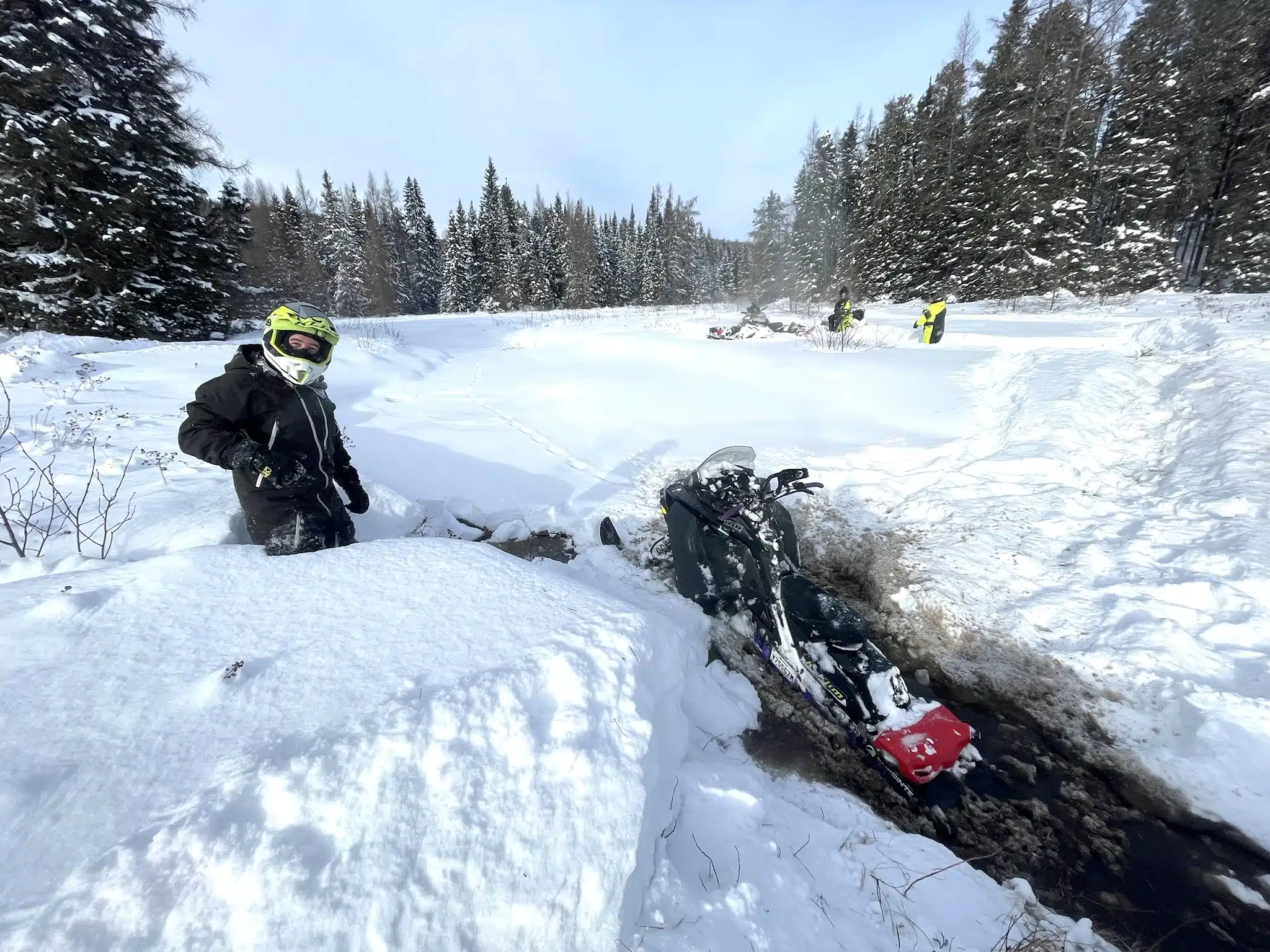
“So yes, you have to be ready to get stuck, work to get unstuck and help others to free themselves too. You also have to be prepared to damage your machine and repair it with staples (or whatever haha!) to successfully get back home. »
And finally, we must be ready to accumulate bruises, injuries and to be catapulted from our snowmobile. It is a magnificent sport, but it still involves its share of dangers and risks.
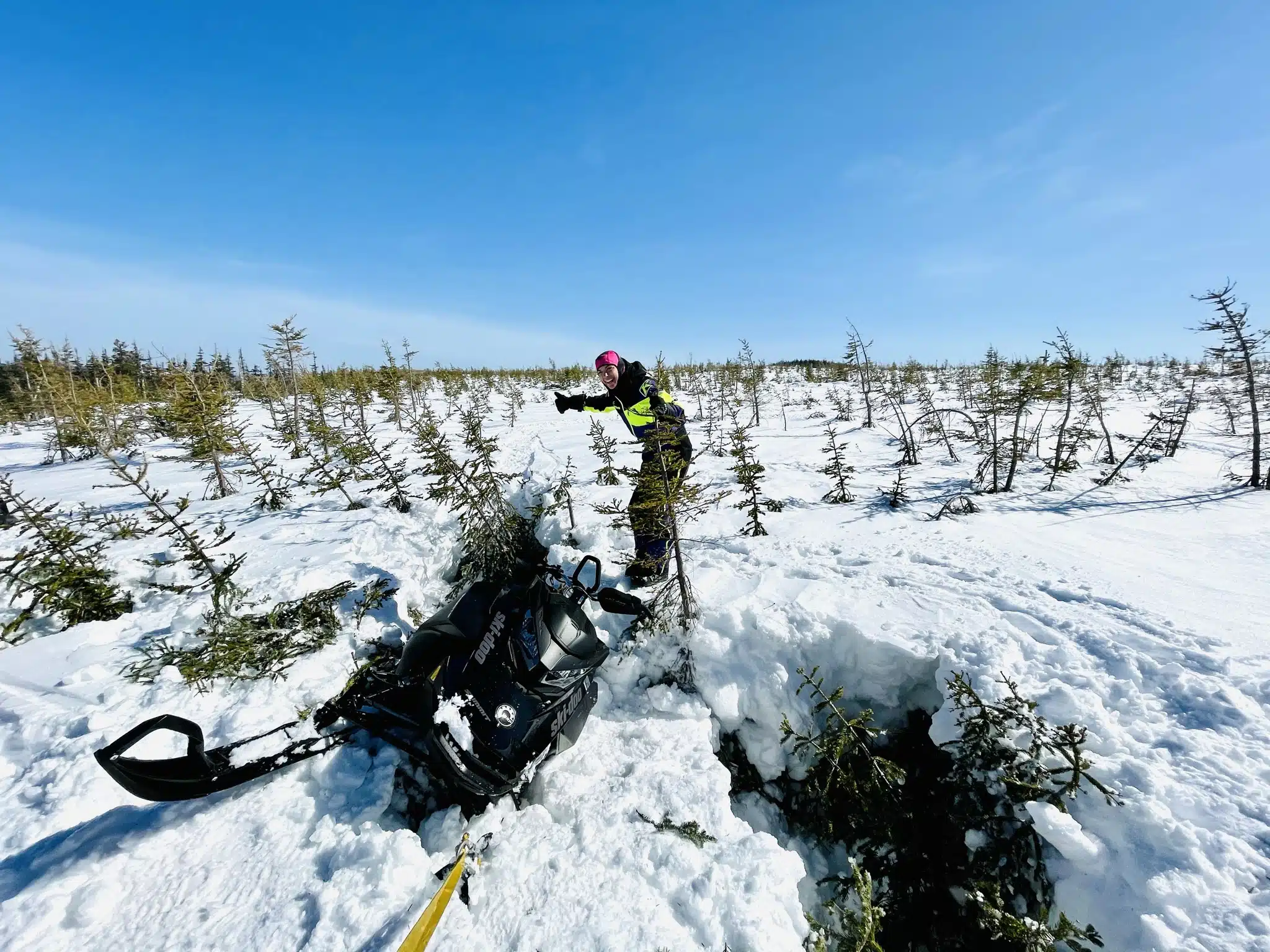
But you know what? When the mountains show themselves in all their glory, a white carpet shimmering in the sun rises right in front of you, you begin your descent kissing the snow, you forget the many minutes/hours spent living “the big misery “ ! And it is in these precise moments that you remember why you love this sport so much.
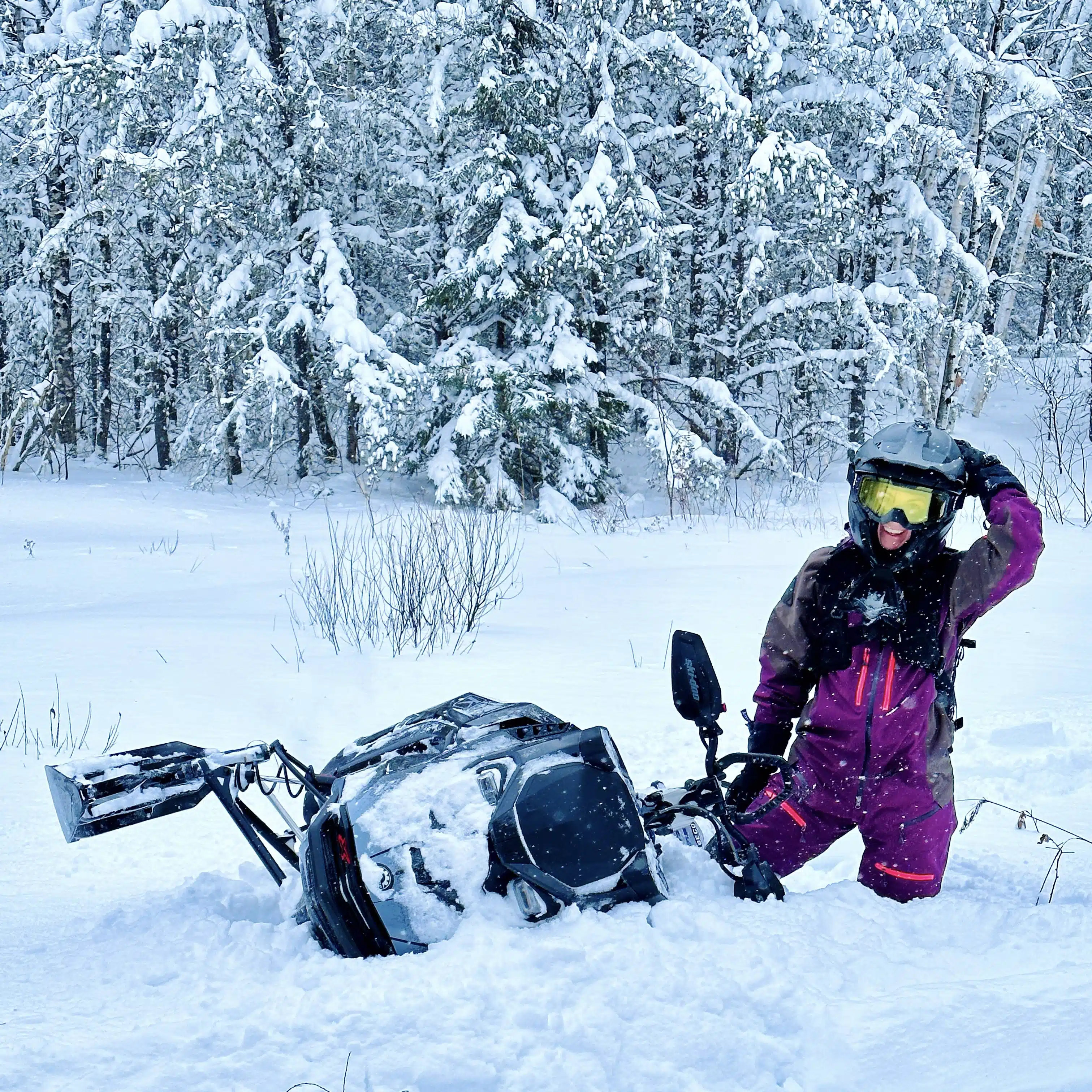
5. YOUR ATTITUDE AND THAT OF THE PEOPLE FROM WHOM YOU LEARN
During the learning period, your attitude and that of the people you are learning from is very important. This is often what will make us continue and evolve in this sport or not.
As I explained a little earlier, this sport is technical and you have to be able to learn from someone. You also usually have to make several attempts before you successfully complete a maneuver; practice is the key to success.
You must therefore show perseverance, determination, self-mockery and not take yourself too seriously. You also need to learn to trust yourself, while knowing how to recognize your own limits. Remember that you will have good days and bad days. You need to be aware of this and learn to listen to yourself.
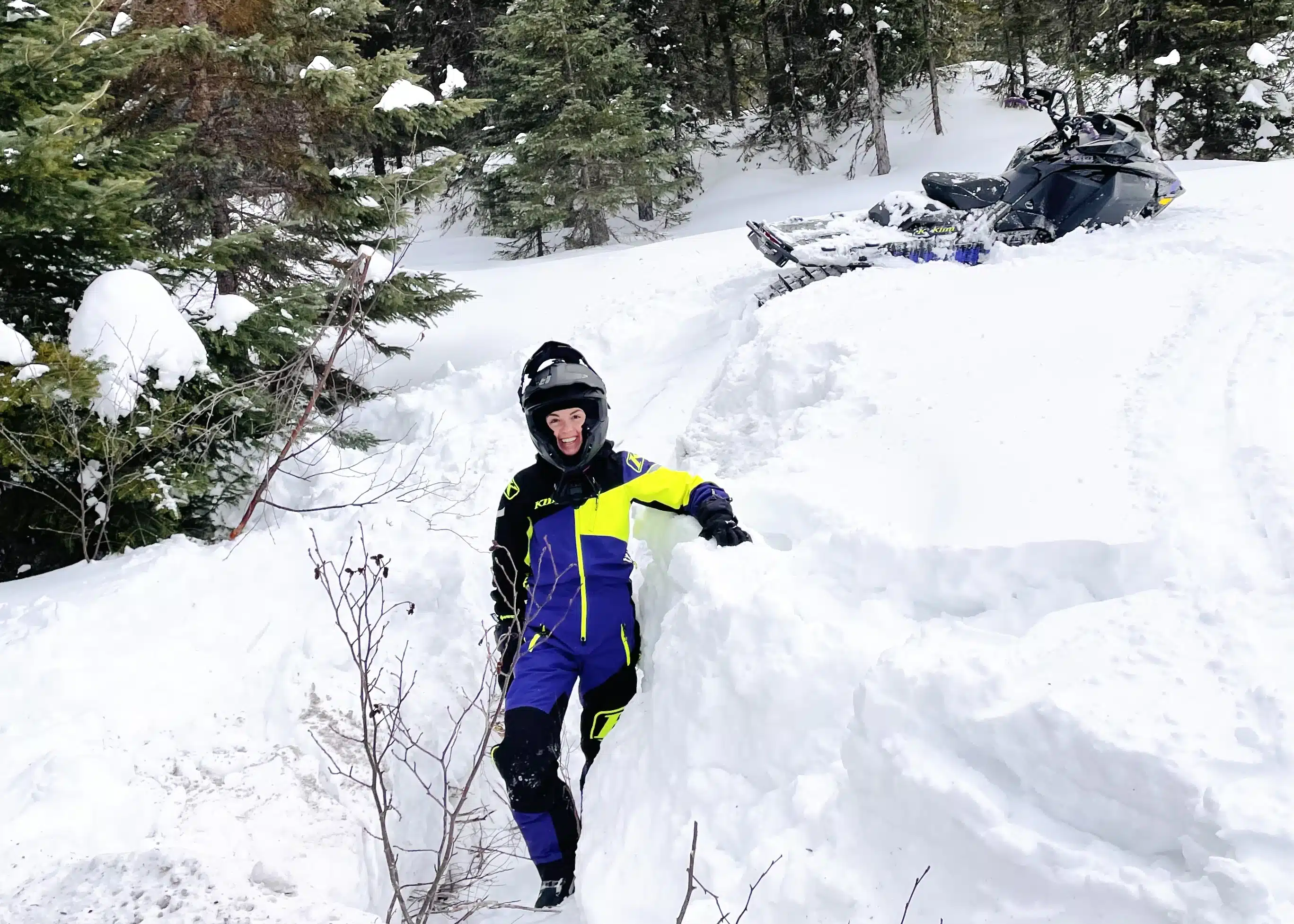
If you want to progress in the practice of this sport and avoid stagnating, it is important to set yourself small realistic goals for each outing. You need to savor your small victories (however small) and not be too hard on yourself, because otherwise it is very easy to get discouraged.
At some point, you’ll also have to learn to step out of your comfort zone, push the machine a bit (while still being safe), trust yourself, have guts, and go for it without thinking too much. It is usually in these moments that we manage to go further in the practice of this sport.
Now, enough about you. Let’s talk about others.
“The people you learn from and ride with do, in my opinion, half the work in your learning. »
Choose your off-trail snowmobile partners and coaches wisely. Ride with patient and understanding people who don’t make you feel bad for being a beginner or at a less experienced level than them.
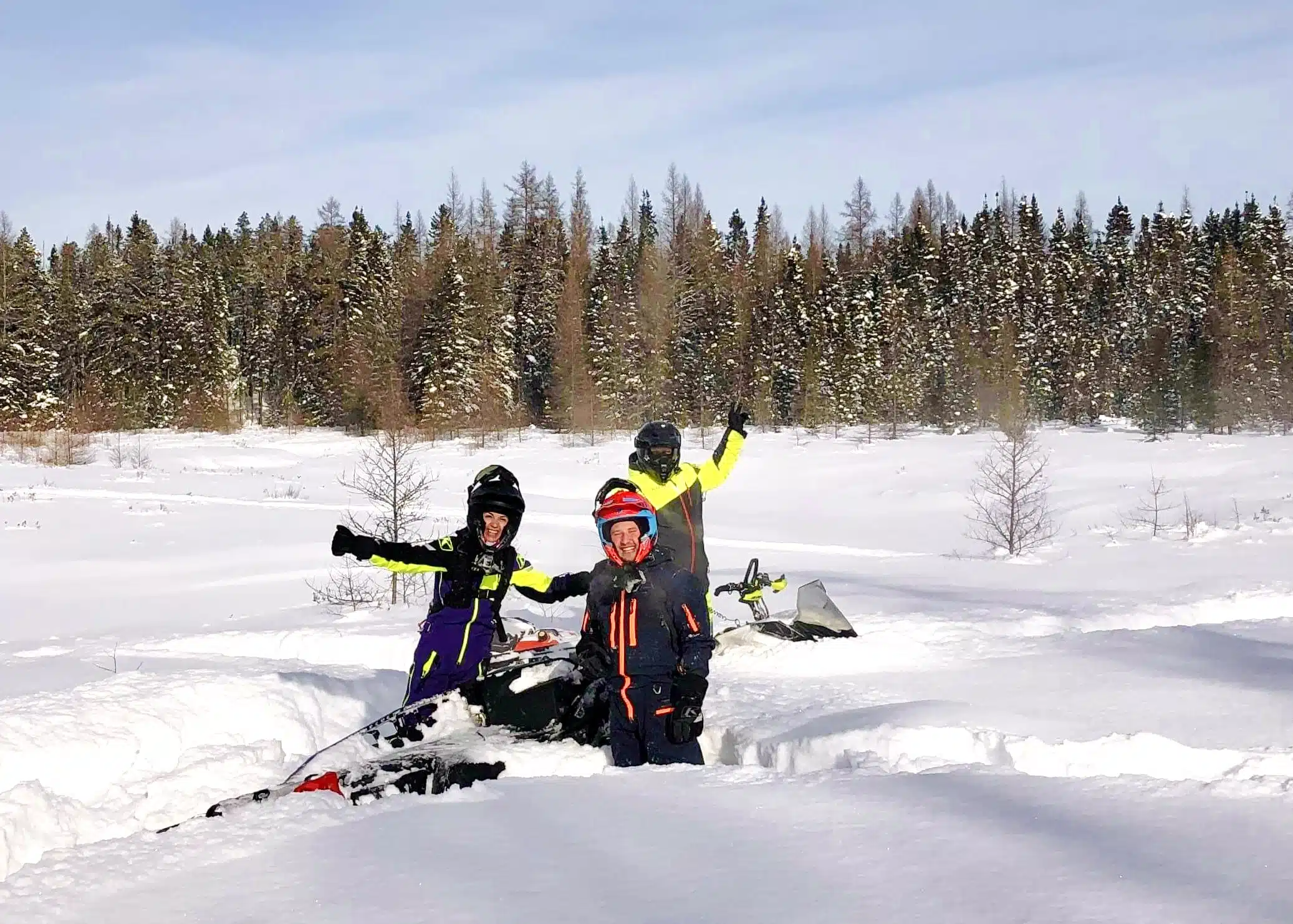
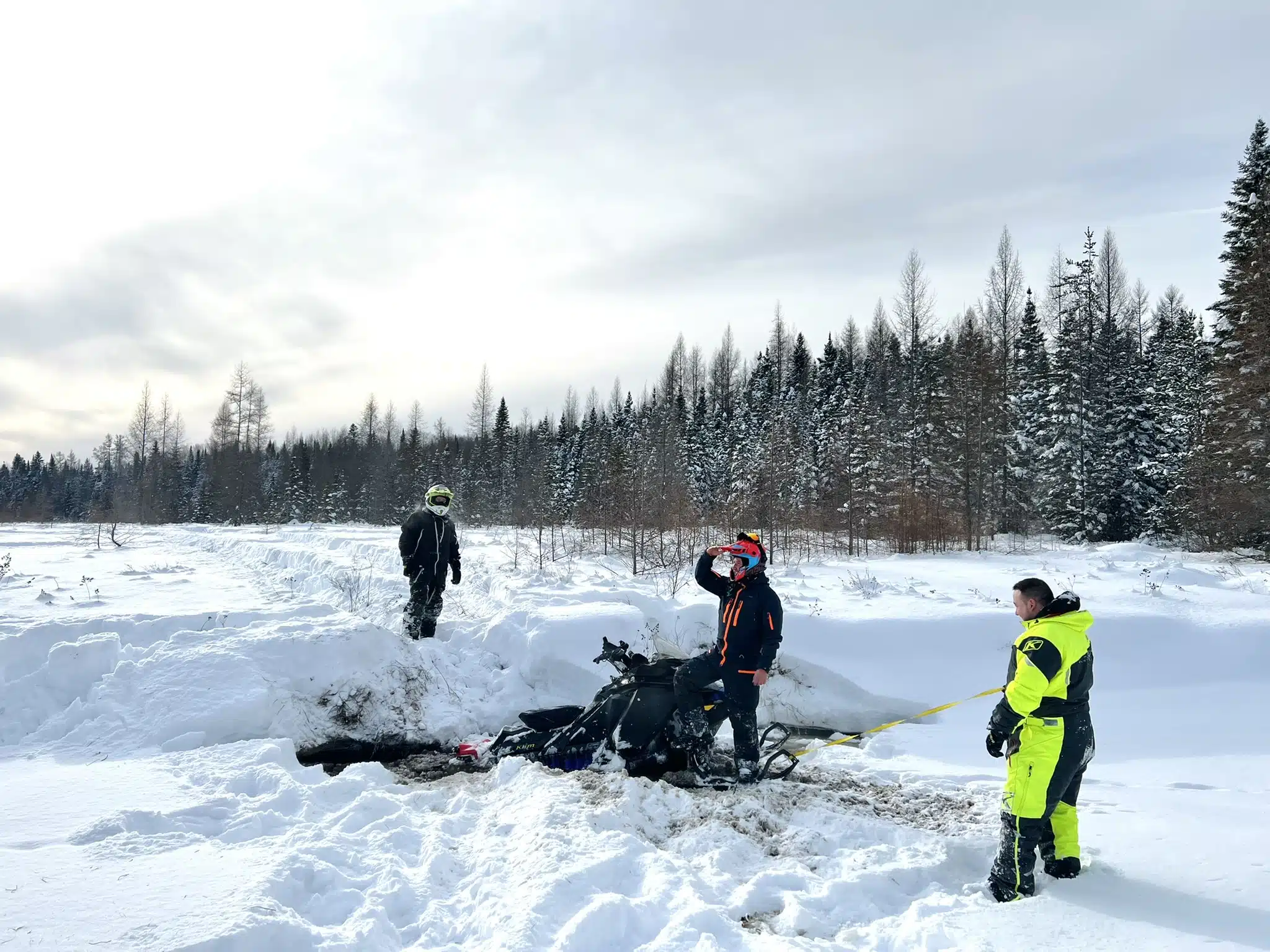
Choose calm people, who make you feel confident to learn and who take the time to fully explain the techniques to you. Just because someone is great at the sport doesn’t necessarily mean they’ll be the right person to coach you.
Also opt for people who know how to encourage you and recognize your small victories and your determination. This will give you a lot more incentive to try and try again, until you pull off a maneuver.
“And ladies, maybe your spouse is the best person to teach you this sport. But maybe, also, he’s not necessarily the best person to do it (haha!)”
From experience, I have often enjoyed learning from other women more. Not only because of the female solidarity and the mutual, pressure-free encouragement that reigns, but also because men and women generally do not have the same morphology and must therefore work differently on their machine.
So it’s good to be able to learn tips and techniques adapted to our female size. For all the info on SheShreds Mountain Adventures, and other girls’ camps, check out my article: SheShreds Mountain Adventures: a girl’s affair.
IN CONCLUSION
As I wrote at the outset, off-trail snowmobiling is for me the most beautiful sport in the world. It gives you an incredible feeling of freedom and self-transcendence, gives you access to landscapes and places otherwise impossible to reach and it allows you to meet exceptional people with whom to share your passion and your stories. You just need to be aware that this is a sport which, like many of them, involves its share of considerations in return.
I will end by telling you that, if you live in Quebec, you will probably spend more time hoping, dreaming, waiting and traveling to your perfect fresh snow than actually floating on it behind the handlebars of your snowmobile! But I believe that it is among other things this expectation and this dream that make this sport so special and that allow us to appreciate, almost with euphoria, these perfect moments spent on the snow.
With that, I leave you. I have to pack my bags for my next trip. I’m going back to see those beautiful girls and the mountains that I’ve missed so much since last year!
